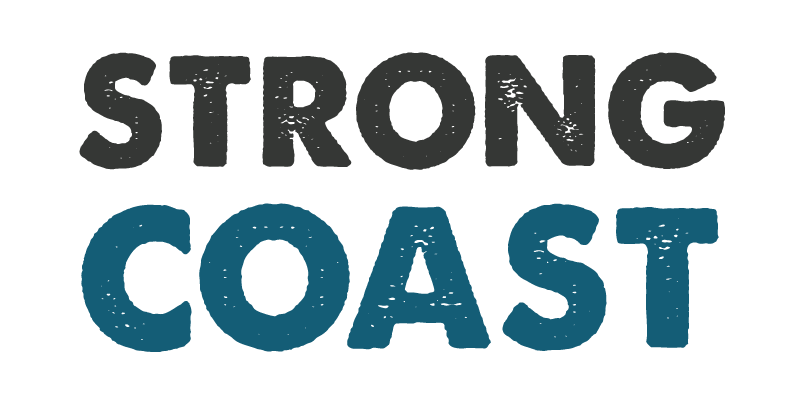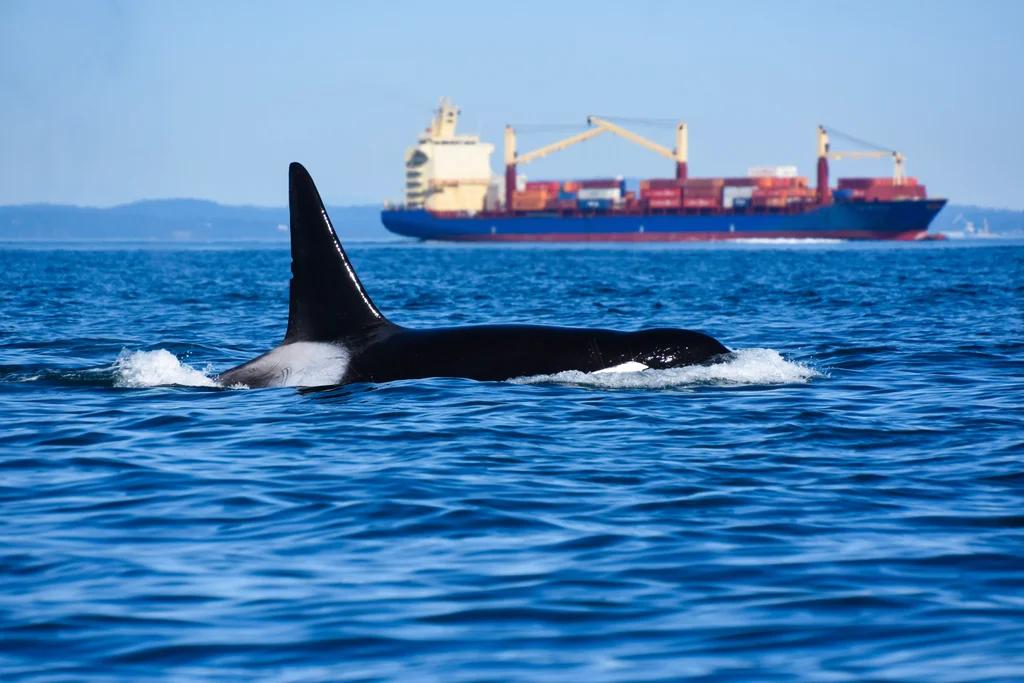
There’s an invisible form of pollution that’s spreading across our waters. It’s usually undetectable by humans, but marine animals, especially whales, can hear it loud and clear.
Scientists are increasingly concerned about the effects of increased vessel shipping and the underwater noise pollution that comes with it on BC’s marine species that rely on sound and echolocation to communicate, navigate, and hunt.
Scientists at the Raincoast Conservation Foundation have taken up the task of listening in on this underwater cacophony and observing the subsequent changes in whale behaviour, with a particular interest in the 73 remaining endangered Southern Resident killer whales that frequent our coast.
They published their findings in early April and identified noise pollution as one of the factors driving the extinction of the Southern Resident population, concluding: “It may be necessary to consider ocean noise budgets, caps, or limits that allow killer whales to hunt scarce prey efficiently.”
Bring the Noise
This is not the first time the issue of underwater noise pollution in BC has been raised, and the government has responded by introducing different measures and restrictions to reduce the impact. However, BC’s coastal waters are about to get noisier, thanks to the Trans Mountain pipeline expansion. The company estimates that it will attract 444 new ships every year, representing a seven-fold increase in tanker traffic in the area.
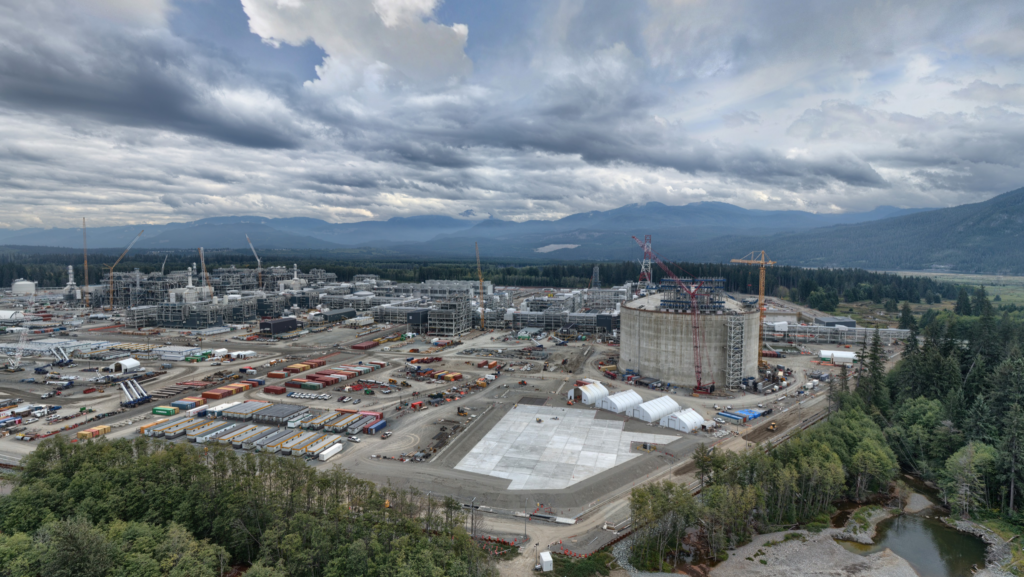
This is not the only project under the spotlight. The LNG Canada site in Kitimat is expected to bring 350 new ships every year travelling the length of the Douglas Channel, which is home to many whale species in BC.
One of the Raincoast scientists, Chris Genovali, has been listening to the sounds of vessels passing by his home south of Pender Island through hydrophones. He watched and listened as a group of Southern Resident killer whales swam past, communicating with each other with their unique calls. However, they were soon drowned out by the noise of chugging ships, and Genovali claimed he could hear the whales straining to communicate with one another above the interruptions.
Slowing Down
The Port of Vancouver launched the ECHO program to encourage ships loading and unloading in the Lower Mainland to slow down as they pass through areas on their route frequented by whales, based on the understanding that slower ships produce less noise. The program has also made changes to certain shipping routes to protect whales.
The program has seen success, lowering ship noise intensity in some areas by nearly half. However, the program only runs through the summer months and has only been able to make changes in a small part of the critical habitat for Southern Resident killer whales.
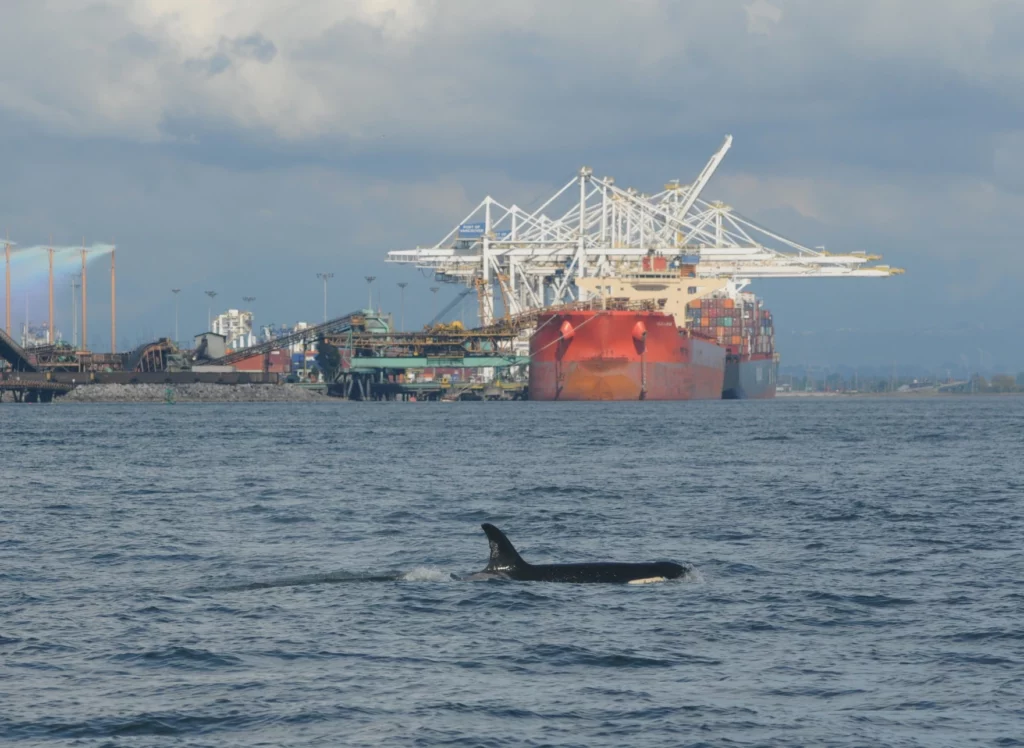
On top of that, a 2023 report found that most of the benefits from ECHO’s slowdowns will be cancelled out by the additional noise from the new traffic stemming from the Trans Mountain expansion, even if those new vessels move slowly.
Lance Barrett-Lennard, a Raincoast scientist, points out that the continued expansion of development projects and approval of new ones is not only a clear detriment to whales but is also frustrating and unfair to the existing industries that have thus far complied with ECHO’s slowdowns.
“The port set [ECHO] up to try to mitigate existing noise, not to create acoustic space that they could then fill up with new developments. You’ve got all these shipping companies that have increased the cost of doing business – to be fair to them – by complying with the slowdown measures. And now we’ve got a new player that comes along and largely wipes out the progress that they’ve made,” he said.
A Call for Leadership
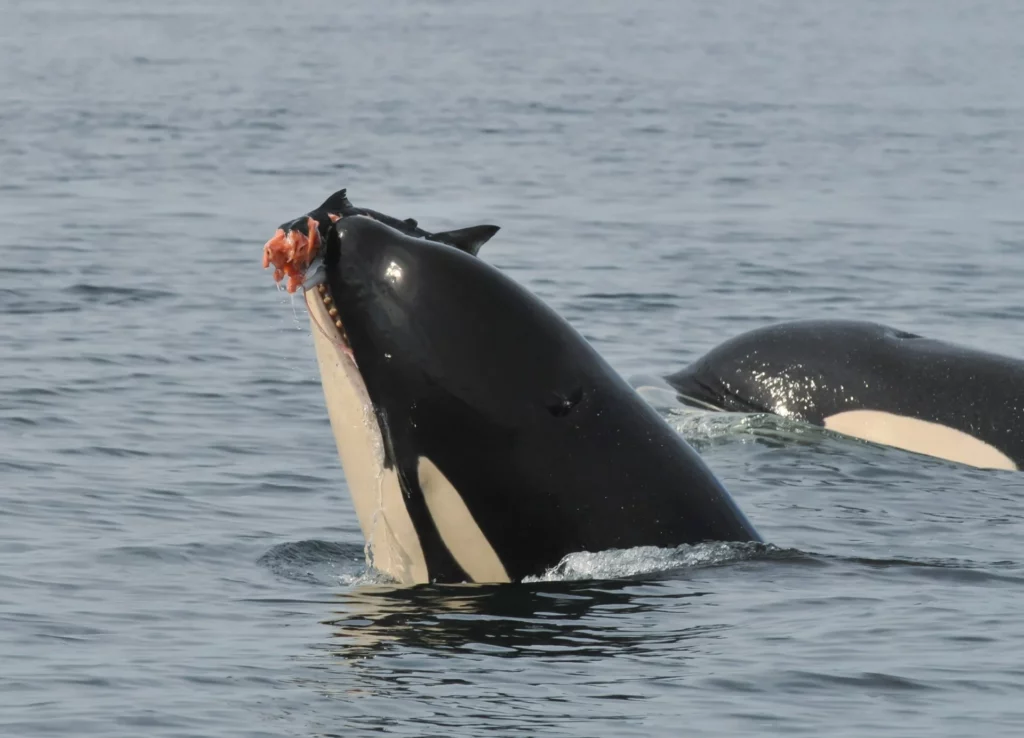
Groups like Raincoast and the Georgia Strait Alliance have come together to file a legal challenge to the government on the basis that the government has an obligation under its own laws to prevent harm to endangered species.
The federal government has said that it has a plan to mitigate the impact of increased noise pollution stemming from the Trans Mountain project. However, a clear plan has not yet been put on the table.
In 2017, Fisheries and Oceans Canada examined different solutions to mitigate vessel noise pollution. They found that sending ships in convoys and enforcing time and speed restrictions were the most promising options, and said in a report that a combination of these three solutions is the best way forward.
However, a representative from ECHO has disagreed with the proposal, claiming that ship scheduling, safety considerations, and the unpredictability of whale presence make this solution impractical.

There are also different technological solutions that could be explored in relation to ship design. The Vancouver Port Authority is offering attractive incentives – including a 75% discount on berthing fees – to vessels that can adopt the best technologies to quiet their ships.
While the authorities have received praise for these incentives, critics point out that ECHO lacks a target for reducing noise pollution. There is no indication of an ideal baseline the program would like to achieve.
The federal government recently committed increased funding and new measures to protect Southern Residents. As part of this support, Transport Canada is providing $3.2 million over two years to the ECHO Program. There are now only 73 remaining Southern Resident killer whales on BC’s coast.
For more on this story, check out this article.
